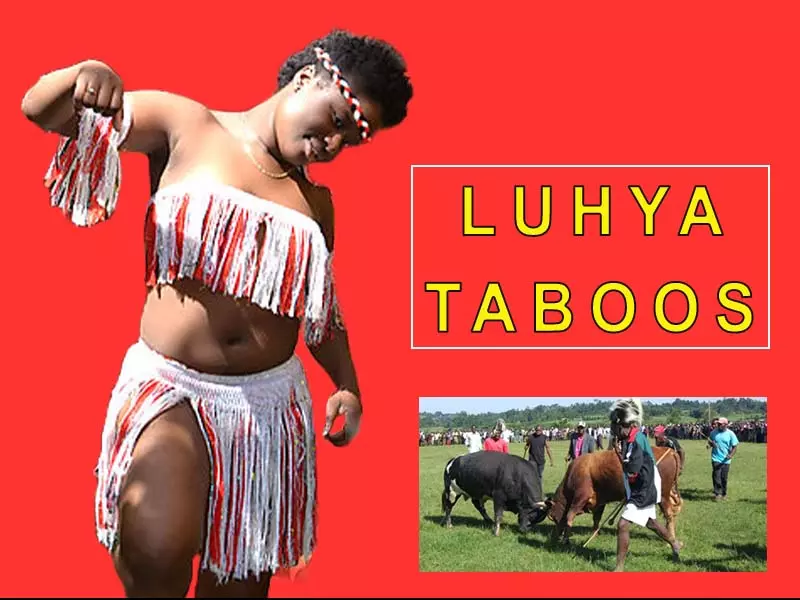Kikuyu people in central Kenya brag about an enriched culture, secured in timeless beliefs and customs. These include rituals woven around critical aspects of life such as birth, circumcision, marriage, death, and food. Enlisted are critical taboos in Kikuyu community.
The passion-driven Agikuyu community with a population of about 10 million is actively driven by prohibitions and taboos otherwise called Migiro and Thahu. These are pillars of social relations and symbols of communal purity.
List of 25 taboos in Kikuyu community
What are the taboos in Kikuyu culture? While the changing trends and modernization have led to the fading of some taboos, a section is still treasured.
These taboos remain applicable and binding across all ages.
1. Eating from a broken pot
It is taboo for a Kikuyu man to eat food from a broken pot because cracks while cooking are a sign from the ancestors that food should not be consumed in the household.
Only women past childbearing age are allowed to eat the food. Eating from the pot means inviting a serious curse to the family.
Also, if anyone deliberately breaks a gourd or cooking pot in a homestead, it will take a sacrifice of seven sheep and goats to purify the taboo breaker.
Most food taboos in the Kikuyu community revolve around the spirits and will of ancestors on the living.
2. Man sleeping at in-law’s home
It is taboo for a Kikuyu man to sleep with his in-laws or anywhere near the family.
Culture does not allow him to sleep in the same area the in-laws reside in.
The old men and women believe in respect and distance when dealing with their in-laws.
Keeping distance from in-laws is one of the Kikuyu rituals aimed at avoiding misunderstandings and fostering good relations between the two families.
The taboo also applies to the Kalenjin, Ameru, and Kisii Communities.
3. Man sleeping at the side of the wall
Gikuyu men must not sleep on the side of their bed against the wall while lying with a woman.
What is the myth of Kikuyus? The strong Kikuyu men believe that a man should sleep on the side near the bedroom door to ensure security and respect.
4. Circumcised man approaching the side of his mother’s kitchen
Do Kikuyu men get circumcised? Yes. Circumcision is a rite of passage for the tribesmen. With it comes the dos and don’ts for the now mature men.
For instance, it is taboo for a circumcised man to approach the side of his mother’s side of the kitchen. Under no circumstance may he even touch her mother’s bed.
5. Eating animal that does not chew cud
The Kikuyu people believe that no-cud animals such as hares and rabbits are bad luck and should not be eaten.
Furthermore, they associate pork with witchcraft, bad luck, and ill health.
Full list of taboos in Kikuyu community
The elderly know better about longstanding Kikuyu beliefs, unlike their millennial and Genz counterparts.
More outstanding taboos in the Kikuyu community are as follows.
- Incestuous relationships between close relatives
- Father going into their son’s house
- Children swinging with the door lintel
- A man holding a baby girl, ‘kungwata mwana’
- Spitting in public
- Whistling at night
- Uttering the name of a dead person
- A person passing under the support pole of a banana plant
- A man falling in his compound; must be picked up with a he-goat.
- A man touching the corpse of a person unknown to him or her
- Child swallowing milk teeth from the upper jaw
- A child to breastfeed another woman except for the mother
- A woman crossing over her husband’s legs or body
- Hyena or fox making noise outside the homestead
- Marrying a woman with a curse of the red thighs
Note that taboos in the Kikuyu community vary greatly and may not necessarily be followed by all sub-tribes.
Although some ancient cultural beliefs have been washed away by modernity, these taboos in the Kikuyu community are still a source of identity. After all, to continue preserving culture, we must continue creating it.
I explore diverse topics with clarity to keep you informed and your businesses profitable. Besides, I am a website developer, ICT consultant, and graduate mechatronics engineer. Lets Chat on WhatsApp.





